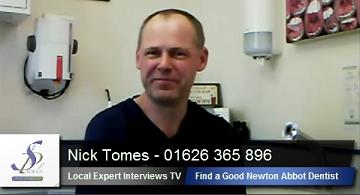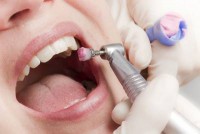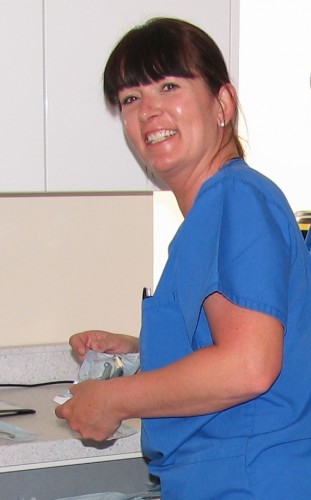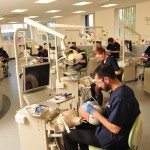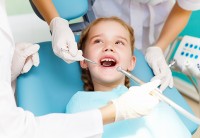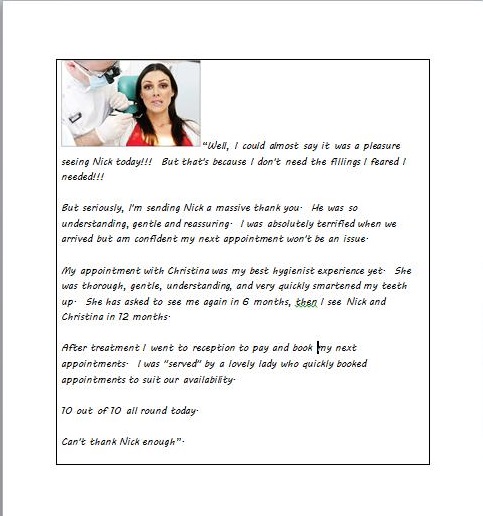Dentistry isn’t just about teeth and gums.
It encompasses your entire oral health, which has a direct relationship with your overall health and well-being.
Dentist v GP?
All too often people will visit their GP with problems like headaches and facial pain, when they might be missing a Dentist’s help.
We need to make people more aware of how we, as dental professionals, can help determine the cause of dental, facial, or head pain and give them the necessary tools to relieve their symptoms and improve their quality of life.
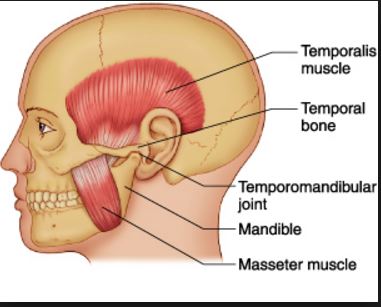
Could a problem with your Temporomandibular Joint/s (TMJ) be causing your Headaches?
More than 10 million people in the UK get headaches regularly, making them one of the most common health complaints.
90% of headaches could actually be caused by disorders in the facial muscles and nerves.
One cause of headaches that warrants investigation by your Dentist, is Temporomandibular Joint Dysfunction/Disorder (TMJD).
More information can be found via the following links:
https://www.stpaulsdentalpractice.co.uk/jaw-problems-devon.html
http://www.nhs.uk/conditions/temporomandibular-joint-disorder/Pages/Introduction.aspx
Up to 25% of the population are affected by TMJD symptoms, but only 5% seek help, the remainder simply ‘put up with’ it.
Symptoms.
Symptoms of TMJD such as pain, locking and stiffness of the jaw can occur at any age, but are more common among women and those between the ages of 20 and 50. They can range from a slight nuisance to severely debilitating as it can impact your ability to eat, talk and sleep. They may occur on one or both sides of the face. Other symptoms include fatigue, ringing in the ears, neck tension, sinus congestion and ear infections.
But what causes TMJD?
There are many possible causes of TMJD but one important element that is so often overlooked is bad posture.
Poor posture can result from occupational factors such as prolonged desk work at an incorrectly set up computer station, lifestyle factors such as being more sedentary, obese, stressed, pregnant, having poor muscle tone, psychological factors such as self esteem and confidence or physical factors such as spinal deformities (scoliosis).
Currently trending, is the aptly named ‘iPad neck’, where looking down for long periods at tablets and mobile phones, causes pain, stiffness and long term postural changes. It stands to reason the jaw joint will also be affected by this.
The Posture Theory.
From an alignment perspective, the human head is meant to sit directly on top of the shoulders.


When the head moves forward, in front of the shoulder joint, especially during sedentary activities, the muscles of the TMJ along with the neck and shoulder muscles have to work hard to support the weight of the head, holding it up against gravity, exerting high forces because the head is no longer in a balanced, energy efficient position, supported by the rest of the body.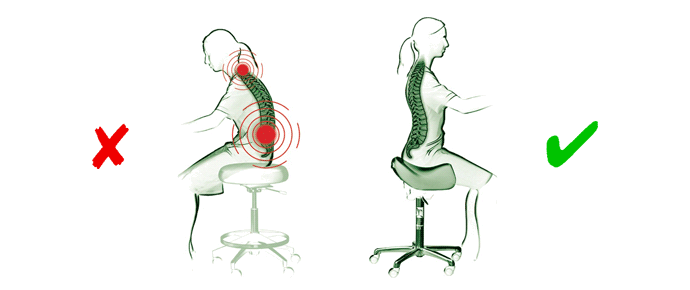
The fine and complex musculature responsible for the movement of the jaw are not designed to perform heavy lifting.
The forward head and neck position triggers a righting reflex in the brain, cocking your head back to level the eyes with the horizon but unless we rebalance the head’s position on our shoulders, this only makes the neck more extended and the extensor muscles working even harder.
This extra effort from the jaw muscles pulls the mandible back and down, the mouth wants to hang open which results in the powerful jaw closing muscles working even harder to prevent this. Under the stress of supporting the head in an incorrect position, the jaw muscles go into lock down and the jaw loses its ability to move smoothly and freely.
What we end up with, is abnormal mandibular positioning, nerve compression, ligament strain and disc compression. No wonder it hurts!
The Solution.
Primarily we must deal with the cause, the head-forward posture. Corrective exercises will restore the jaw joint’s ability to glide freely and remove the pressure on the surrounding musculature.
- make a conscious effort to stand, sit and lie down properly.
- always practice ‘head up’ walking.
- if you are reading for prolonged periods, keep your mobile, book etc held up in front of you, level with your eyes.
- if you have to sit for long periods, at a computer or desk, take frequent breaks (about every 20 mins.) to look up; sit up or get up and stretch.
- stay active, take regular good exercise.
Do this exercise often:
- Stand up straight, look straight ahead. Keeping your head and chin level.
- Gently lengthen your neck upwards as you tuck in your chin, drawing your head back over your shoulders.
- Bring your shoulder blades down and back towards your spine.
- Pull in your lower tummy muscles to maintain a natural curve in your lower back.
- Hold for 3-5 seconds. Repeat 10 times.
- DO NOT allow the head to return forward past neutral.
- Do not elevate your chin or shoulders.

More good advice can be found here:
http://www.nhs.uk/Livewell/Backpain/Pages/back-pain-and-common-posture-mistakes.aspx
and download our Exercises to improve the function of the Temporo-mandibular Joint from our websites’ download page.
https://www.stpaulsdentalpractice.co.uk/downloads.html
Symptoms can also be treated with pain medication or your Dentist may decide to refer you to a specialist. Other treatments include injecting the jaw joint with a long-lasting local anaesthetic and steroid; fitting a bespoke oral appliance, such as a bite guard to help align the teeth, relieve pressure, prevent damage to teeth and rest the jaw.
It is also important to attend to any required dental work, to maintain the stability and integrity of your bite, such as addressing loose crowns, bridges or ill-fitting dentures.
Take home message.
Visit your Dentist regularly, your oral health is of paramount importance to your well being.
If you suffer from headaches or jaw problems, discuss this with your dental team. They will be able to help. Finding the cause of the problem is half way to a solution.
